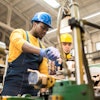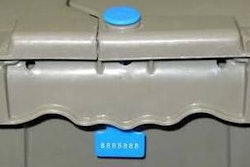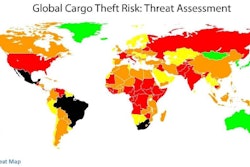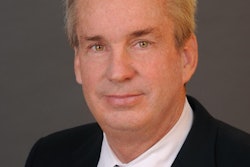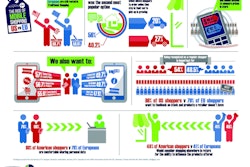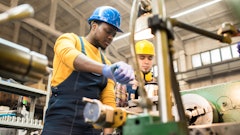Every company acting as a business in today’s global supply chain has a corporate social responsibility—no ifs, ands or buts about it. With the global population set to peak at nine billion in 2050, increasing trade discussions –most recently between the U.S. and Japan to talk matters of a Trans-Pacific Partnership—and expanding manufacturing footprint, today more than ever businesses must address their sustainable footprint. More importantly, they must address what their lack of a sustainable footprint would mean for the global environment. This month, we caught up with Doug Cutler, Director of Quality for ModusLink Global Solutions Inc., to educate our readers on why sustainability is no longer just a “fad” and its necessity within one’s supply chain.
SDCE: Do you believe that everyone has a responsibility to take the right corporate social measures within their own business? Is anyone actively involved within the supply chain exempt from CSR?
Doug Cutler: Certainly all companies have a responsibility to engage in a socially responsible way and to advance traditional CSR activities to the degree they can within their budgetary and resource guidelines. It is important to note that these programs aren’t “free” to develop and manage. Effective CSR has to be planned and executed as part of a long term and overall company-wide strategy and the results must be transparent. Goals may not be met in an immediate timeframe, but allowances for acceptance and commitment must be considered while companies are on the learning curve and beginning to incorporate CSR as a natural course of doing business.
SDCE: What reasons compelled ModusLink Global Solutions to focus more—especially over the last couple of years—on their actions to meet corporate social responsibility?
Doug Cutler: ModusLink is clearly committed to the same general business principles as our clients, many of which are in the high-tech and consumer electronics space. This is a market that naturally lends itself to many CSR initiatives. With that in mind, it is in many cases a fundamental business requirement for ModusLink as a supply chain provider to be heavily engaged in the same environmental, health and safety programs as our clients. Generally speaking, most of these principles require all of us to be good stewards of our environment and to promote personnel safety and quality of life, so it was without hesitation that ModusLink began actions to comply with good CSR habits once solid, international standards began to be established.
SDCE: In December 2012, after two years as an applicant member, ModusLink became a full member of the Electronic Industry Citizenship Coalition (EICC). Since joining the EICC, how have your actions to continue meeting CSR changed? Have they increased and if so, how and in what specific category or industry segment?
Doug Cutler: With more than 25 sites across the globe, the involvement of personnel and site leadership within ModusLink’s CSR activities has definitely increased. As a company, we cannot be completely successful in meeting goals and commitments to EICC or our own outlined CSR expectations without local support and properly-guided activity at the site level. We have established regional accountability for each of our sites, as well as provided training and documentation for site leadership to administer. The biggest gain we are seeing now is the individual sites’ ability to show compliance to EICC requirements along with the readiness for an audit as needed. The risk factors for noncompliance continue to decrease as measured by our self-questionnaires and internal audits.
SDCE: How do you extend your CSR initiatives to educate your clients? And in turn, what actions have you witnessed from your clients as a result of your educational awareness measures?
Doug Cutler: From a sustainability point of view, I believe CSR initiatives are easily communicated due to an increasingly educated public. The population as a whole has become more aware of the impact they may be imposing on their surroundings and with this heightened education, there is also awareness of how the products we buy and the components that are used in manufacture are handled. We generally attempt to steer our clients towards more sustainable and renewable materials, which they appreciate, because it makes sense to do so from a supply chain point of view, makes good business sense in terms of costs savings and contributes measurably to their sustainability efforts.
SDCE: What trends do you see on the global horizon as far as how different regions and countries adopt CSR practices within their business differently based on economic factors?
Doug Cutler: We currently have three regions that we focus on within ModusLink—Europe, Asia and North America—and we have intentionally established like practices for all three regions to follow. Thus far, minimal difference has been seen in application and practice as all 3 regions have shown acceptance and compatibility. With more and more standards being globalized, with the intent that they will be implemented uniformly throughout a company’s numerous locations, I expect this is a trend that not only will we continue to follow, but that will likely become the norm. In time, it’s likely to be independent of economic factors, as it will become a standard cost of doing business, at least for many highly visible markets.

